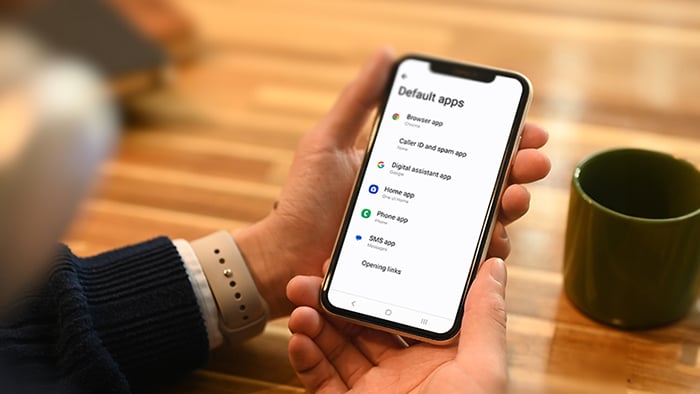The fastest browsers in 2025
Your web browser is your portal to the internet. Any time you want to visit a website — any website — your browser is the tool for the job. You likely use a web browser multiple times a day, including right now to read this article. Put simply, your browser makes it possible for you to access websites on your computer and phone. (Skip down to the results of our tests.)
Given their crucial role in our online lives, it’s super important for browsers to be fast. As internet infrastructure improves — say hello to 5G, and no, it’s not going to make you sick — website designs can grow more complex. Your browser’s job is to bring you these websites as quickly and smoothly as possible. The last thing you want is your web browser to make your internet connection slower.
What factors affect browser speed?
The time it takes for a web browser to fully render a website is called page load time. There’s no one factor that’s singularly responsible for page load time, and many websites experience different page load times depending on the browser that’s loading them. Browser speed is one factor that can influence page load time, but your network connection as well as the website’s own architecture and design also play a part.
For example, websites with lots of ads may load more slowly than sites with fewer ads, since your browser needs to load the ads along with the website’s content. That’s why a browser with built-in ad blocking, like Avast Secure Browser, can often load a page more quickly than a browser that serves you ads along with the content you want to read or watch.
Testing for speed
We speed-tested the four most popular browsers as well as four up-and-comers that, while perhaps not as well known, are still strong options for the default browser on your device. For our tests, we used BrowserBench’s Speedometer 2.0 testing tool. Toward the end of this article, we’ll provide more details on our process and show you how you can perform your own browser speed tests.
The scores in this test simulate a browser’s performance in everyday-use scenarios. Higher scores reflect a browser’s ability to respond faster to the typical actions you might take, such as adding items to a to-do list. Think of this test as a measure of a browser’s efficiency. But keep in mind that the scores in this article do not reflect other speed-related factors, such as:
-
Loading a page with ads and web trackers or while blocking ads and trackers.
-
The speed of your internet connection.
-
The browser’s demand on your computer’s resources.
-
Security and privacy protections, either basic or advanced.
The best fastest web browser by feature
|
Best for
|
Browser
|
Compatibility
|
Top features
|
|
Security
|
Avast Secure Browser
|
PC, Mac, Android, iOS
|
- Built-in VPN
- Anti-tracking and ad-blocking
|
|
Windows
|
Microsoft Edge
|
PC, Mac, Android, iOS
|
- The fastest PC browser
- Integrated privacy features
|
|
MacOS
|
Safari
|
Mac, iOS
|
- Fastest browser in testing
- Automatically blocks third-party cookies
|
|
Social media
|
Opera
|
PC, Mac, Android, iOS
|
- Social media integration
- Pop-up blocker
|
|
User customization
|
Vivaldi
|
PC, Mac, Android
|
- Extensive user control settings
- Anti-tracking protections
|
|
Integrations and extensions
|
Chrome
|
PC, Mac, Android, iOS
|
- Seamless integration across Google’s products and apps
- Lots of extensions to customize browsing
|
How do the big four web browsers perform?
Google Chrome, Mozilla Firefox, Safari, and Microsoft Edge represent nearly 90% of the global browser market share. That means that roughly nine out of every 10 people use one of these four browsers to access the internet. But are they the fastest? Let’s find out.
Google Chrome
Chrome is by far the most popular browser, capturing just under two-thirds of the global market share (as of summer 2020) across all devices. That includes computers, both desktops and laptops, as well as smartphones and tablets.
Here’s how Chrome performed in our three speed tests:

Average score: 105.17
(The scores in all of our tests reflect a browser’s performance in everyday-use scenarios. Higher scores mean a browser responds faster to the typical actions you might take.)
Mozilla Firefox
Mozilla Firefox is an open-source browser and the most popular third-party solution, meaning that it’s not made by an operating system (OS) developer such as Google (Android), Microsoft (Windows), or Apple (macOS and iOS). Across all device types, approximately 4% of people around the world choose to access the web via Firefox.
The open-source nature of Firefox echoes Mozilla’s focus on user privacy and security, because open-source code can be inspected by anyone who’s interested or wants to make sure there’s nothing shady going on. But is it fast? Here’s what our tests had to say:

Average score: 92.1
Safari (macOS)
Safari is Apple’s proprietary browser and comes preinstalled on all Apple devices, both macOS and iOS. In terms of global market share, nearly 20% of internet users access the web through Safari — largely due to its presence on all Apple devices. While Safari used to be available on Windows, Apple no longer supports a Windows version.
Like Firefox, and unlike Chrome, Safari blocks all third-party cookies by default, reflecting Apple’s (current) stance against the wholesale gobbling-up of data for use in advertising and marketing campaigns.
Since Safari isn’t currently supported on Windows, we tested it on macOS. Let’s see how it performed:

Average score: 133
Microsoft Edge
Edge is Microsoft’s proprietary browser, having replaced the long-lived Internet Explorer back in 2015 for Windows 10 and Xbox One. Edge comes standard on all Windows devices, and in comparison with its predecessor, is a strong step into the modern browser era.
The current versions of both Edge and Chrome are based on Google’s open-source Chromium code, so if you’re already using one of these, the other will feel quite familiar. Edge also includes some privacy features not found in Chrome, such as a built-in anti-tracking tool.
For this test, we reviewed the new and updated Edge — some people may still be using an older version, now called Edge Legacy. As always, we recommend that you only use current software as a precaution against computer exploits.

Average score: 125.63
And, just for fun, here’s how Microsoft Edge Legacy performs — in case you’re looking for another reason to update your software!

Average score: 57.1
Conclusions
Though Safari emerged as our clear speed winner, it’s not currently available for Windows. PC users looking to prioritize speed above all else may want to consider Microsoft Edge, followed by Chrome, and finally Firefox.
But there’s a whole world of exciting browsers outside of those four, many of which have useful features and tools not found in more mainstream offerings. Next, let’s take a look at four browser upstarts to see how they stack up.
Up-and-coming browsers
The remaining 10% or so of the global browser market comprises every browser other than the four mentioned above. Just because Chrome, Firefox, Safari, and Edge are the most popular doesn’t mean that they’re the best options — speed-wise or otherwise.
Avast Secure Browser
The free, cross-platform Avast Secure Browser was built from the ground up with your privacy and security in mind. Like Chrome and Microsoft Edge, it’s also based on Google’s open-source Chromium model, but with a ton of additional security and privacy features built-in. And it's engineered by the same team that created award-winning free antivirus software.
The built-in ad blocker improves page load times by automatically blocking ads before they can clog up your bandwidth and clutter your browsing experience. Nobody wants to see more ads than actual content. And while you’d need to install additional ad blocking software with any of the big four browsers, it’s built directly into Avast Secure Browser. Mobile users can enjoy even stronger protection with the integrated VPN, absolutely free.
And with a comprehensive range of security and privacy tools, Avast Secure Browser shields you against phishing attempts, web trackers, hackers, and much more.

Average score: 87.53
Blocks ads, avoid online tracking, and stay protected against malicious websites and downloads with a private browser designed by security experts. Not only will it keep your activity more private and your data more secure, with a built-in ad blocker you’ll enjoy fast, buttery-smooth browsing. Download it today — completely free.
Opera
Opera is a cross-platform browser that, despite not gaining much mainstream traction, has pioneered several core browser features now taken for granted. Browser tabs, built-in pop-up blocking, and the ability to reopen recently closed pages all made their first appearance with Opera. The same goes for the now-ubiquitous “speed dial,” where you see your most frequently visited pages displayed in a grid when opening a new tab.
The current version of Opera ships with a built-in ad blocker and social media integration. Let’s see how Opera stacks up in terms of speed:

Average score: 101.3
Vivaldi
Headed by Opera’s former CEO, Vivaldi is another strong contender in the realm of third-party browsers. Like many browsers on this list, it’s based on Google’s Chromium open-source code, meaning that it’s compatible with all your favorite Chrome extensions.
A highly customizable browser, Vivaldi gives you extensive control while also allowing you to create any keyboard shortcuts you like. It’s also got protection against ads and trackers. But while it’s available on most platforms, there’s still no iOS support.
The big question, though: is it fast?

Average score: 104.3
Brave
Like our own Avast Secure Browser, Brave is a privacy-oriented browser that’s a relative newcomer to the browser scene. Among its privacy-enhancing features are ad, tracker, and fingerprinting blockers, as well as a Tor mode.
Brave also includes an innovative reward system in which users can opt to view ads within the browser in exchange for earning “tokens,” which they can then use to support their favorite websites and content creators.
But how fast is it?

Average score: 101.43
Conclusions
If you’re looking to prioritize browsing speed above all else, Vivaldi is your winner — though none of the browsers in this second category were able to match Microsoft Edge in terms of speed.
Which web browser should I use?
This isn’t really a question we can answer for you, because the answer is, “it depends.” When it comes to defining the “best” browser, what’s most important to you? Speed is great, but there’s more to the internet than simply accessing it as quickly as possible.
The fastest browser download speeds aren’t the be-all, end-all of what makes a given browser good. What else should we consider?
Quickest doesn't always mean best
Speed is just one factor when it comes to defining “best.” Here are a few other things you may want to consider when evaluating a new browser:
 Privacy: How thoroughly does the browser anonymize you online? Does it block ads, third-party cookies, and trackers? Does it prevent other types of web tracking, such as browser fingerprinting? A private or incognito mode is just the tip of the iceberg when it comes to truly private browsing. What other privacy features does your browser have?
Privacy: How thoroughly does the browser anonymize you online? Does it block ads, third-party cookies, and trackers? Does it prevent other types of web tracking, such as browser fingerprinting? A private or incognito mode is just the tip of the iceberg when it comes to truly private browsing. What other privacy features does your browser have?
 Security: While privacy is about obscuring your identity, security comes down to keeping you safe. Is your browser dedicated to protecting you and your personal data? Does it force websites to use HTTPS encryption or provide another type of encryption? Will it warn you if you stumble upon a potentially malicious website or link?
Security: While privacy is about obscuring your identity, security comes down to keeping you safe. Is your browser dedicated to protecting you and your personal data? Does it force websites to use HTTPS encryption or provide another type of encryption? Will it warn you if you stumble upon a potentially malicious website or link?
Will your browser know when one of your accounts is compromised in a data breach? Avast Secure Browser’s Hack Check tool will alert you if and when this happens so that you can change your account password and protect your personal information.
 Resource usage: A fast browser isn’t necessarily a lightweight browser. How taxing is your browser on your RAM and CPU? This is especially important if you’re using an older or more stripped-down computer without a lot of RAM to spare.
Resource usage: A fast browser isn’t necessarily a lightweight browser. How taxing is your browser on your RAM and CPU? This is especially important if you’re using an older or more stripped-down computer without a lot of RAM to spare.
The built-in Performance Manager in Avast Secure Browser optimizes both RAM and CPU usage by automatically suspending inactive browsing tabs. And if you’re using a laptop to browse, you’ll enjoy extended battery life as well.
 Usability: Simply put, how easy is it to make your browser do what you want? And can it? Are there features you need that your browser doesn’t support? Can you customize your browser’s look and feel? Does its design seem logical and intuitive to you, or is it forcing you to adapt to the way it wants you to browse the web?
Usability: Simply put, how easy is it to make your browser do what you want? And can it? Are there features you need that your browser doesn’t support? Can you customize your browser’s look and feel? Does its design seem logical and intuitive to you, or is it forcing you to adapt to the way it wants you to browse the web?
Best for superfast browsing
If you’re all about speed, the clear winner in the “super-fast browser” category is Microsoft Edge. Since it’s Chromium-based, you’ll be able to use your favorite Chrome extensions with it. And unlike Chrome (but like many of the other browsers in our roundup), it blocks trackers to make your browsing both private and secure.
But maybe you’d rather not go with a browser made by one of the big tech giants. In that case, speed-focused web surfers can opt for Vivaldi. It’s not quite as fast as Edge, but it comes packed with a suite of customization options. So if you’re looking for maximum control over how your browser looks and works, Vivaldi might be the right choice for you.
Best for combined speed and privacy
The speed at which your browser can rip through simple web applications is just one aspect of what makes for a great internet experience. Avast Secure Browser outfits you with a full suite of built-in features and tools to protect your privacy and security from the ground up and to a degree not seen in many of the other browsers on this list.
By blocking ads before they load, you’ll avoid hard-to-detect browser threats like browser hijacking, where hackers and other cybercriminals stealthily take over your browser to show you even more ads than normal.
Worried about hackers peeking in on your internet traffic? Avast Secure Browser forces all websites to protect your traffic with HTTPS encryption. And phishing scammers will have little chance of ensnaring you in their traps when your browser detects malicious websites and warns you in advance. Add to that state-of-the-art privacy protection against browser fingerprinting, and you’ll be well-insulated against nearly any online threat.





















